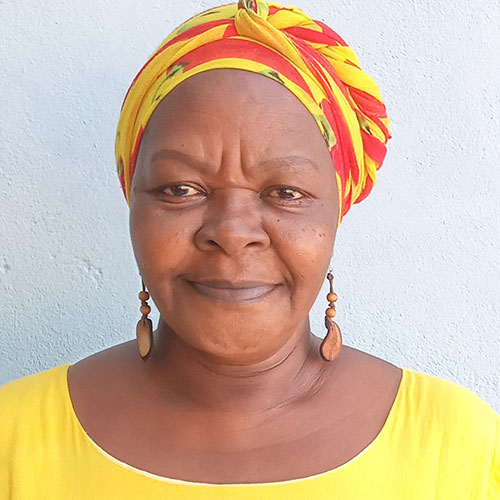People with disabilities broaden their rights through public policies
Did you know that People with Disabilities (PwD) have a series of rights guaranteed by specific legislation, which aim to promote equal opportunities, social inclusion and access to benefits that contribute to a more dignified life?


The Dia Nacional de Luta da Pessoa com Deficiência (National Day of Struggle for People with Disabilities), celebrated on September 21st in Brazil, marks the mobilizations for the inclusion of this population and awareness about the fight against ableism.
Although it was only made official in 2005 with law No. 11,133, this date has been marked by a demand from the Movimento pelos Direitos das Pessoas com Deficiência (MDPD) (Movement for the Rights of People with Disabilities) since 1982.
The fight for the human rights of people with disabilities is historic and had its greatest milestone in 1948, with the Universal Declaration of Human Rights, decreed by the United Nations (UN).
Social protection for people with disabilities
The first protection initiatives aimed at people with disabilities in Brazil date back to the Empire period, with the creation of the Instituto Benjamin Constant and the Instituto Nacional de Educação de Surdos (National Institute of Education for Deaf) by D. Pedro II.
These educational institutions had the initial objective to welcome male children and adults from all over the country, many of whom were abandoned by their families.
According to data from the 2010 Census from the Instituto Brasileiro de Geografia e Estatística (IBGE) (Brazilian Institute of Geography and Statistics), there are 45.6 million people with some type of disability in Brazil, which represents approximately 23.9% of the population.
The Federal University of Espírito Santo (Universidade Federal dos Espírito Santo (UFES)), in celebration, held the I Seminário UFES de inclusão no Ensino Superior: acesso e permanência de estudantes com deficiência (1st UFES Seminar on inclusion in Higher Education: access and retention of students with disabilities) from September 28th to October 1st.
The Seminar celebrated 10 years of the Acessibility Unit (Núcleo de Acessibilidade) of UFES (NAUFES) and brought reflections and notes on accessibility in higher education.
Appropriate language and the right to inclusion
The acronym PcD is Pessoa com Deficiência in Brazil (as PwD stands for Person with Disability), a term recommended to refer to individuals with long-term physical, mental, intellectual or sensory limitations.
The Estatuto da Pessoa com Deficiência (Statute of Persons with Disabilities), Law No. 13,146, of July 6, 2015, represents a significant advance in the rights of people with disabilities (PwDs) and ensures access to education, work, health and accessibility.
Types of disability
According to the 2000 Census by IBGE, around 24.5 million Brazilians, or 14.5% of the population, face challenges related to hearing, vision, mobility, physical conditions or mental and intellectual capabilities. This survey reveals the diversity and prevalence of disabilities in Brazil, highlighting the importance of inclusive policies and practices.
Each type of disability presents its own challenges, but the common goal must be inclusion and creating equal opportunities for all people in this situation.
This involves everything, from adapting the physical environment to implementing assistive technologies and inclusive policies, ensuring that everyone can fully participate in life in society, with barrier-free access to education, work and leisure.
Disabilities can also be identified as congenital, present from birth, or acquired, developed throughout life due to accidents, illnesses or other causes.
Rights, inclusion and accessibility
People with disabilities are entitled to a variety of benefits guaranteed by law, which aim to facilitate their social inclusion. For example, tax exemption in certain circumstances and the right to half-price at events and cultural spaces.
Furthermore, people in this group have access to benefits, such as discounts on electricity bills, special conditions for retirement and the right to disability retirement, thus guaranteeing important support to face the barriers that disability can impose on daily life.
Another important support is the Benefício de Prestação Continuada (BPC) (Continuous Payment Benefit), a financial support that ensures a minimum monthly wage for people with disabilities who prove they have no means of support.
These rights are fundamental to ensuring equity and promoting the full integration of people belonging to this group in society, reflecting an important advance in inclusion and accessibility policies.
Respect
Recognizing and respecting differences is fundamental to building a more inclusive society, where each person, regardless of their limitations, can contribute and develop fully.
In this way, the inclusion of PwDs in the job market benefits not only individuals, but also organizations, bringing diversity of experiences and perspectives that can boost innovation and creativity.
Find out more about the rights of people with disabilities by clicking here.
Also read about the Lei Brasileira de Inclusão da Pessoa com Deficiência (Brazilian Law for the Inclusion of People with Disabilities), published on 07/06/2015.



